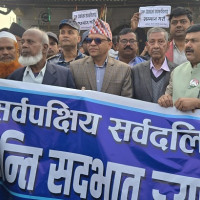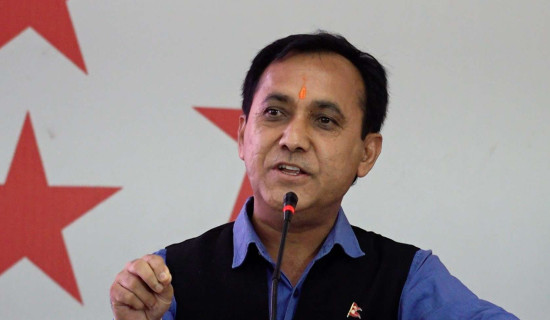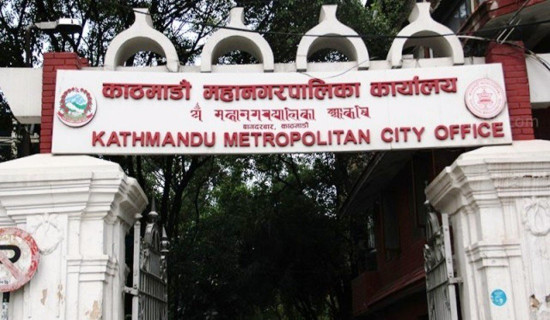- Monday, 23 February 2026
Traditional profession of Badi community in crisis
By Siraj Khan,Nepalgunj, Aug. 20: Modernisation has led to the decline of various ancestral professions of different communities. As traditional skills lose their market, the unique cultural heritage tied to these professions is also facing an existential crisis.
The growing popularity of modern musical instruments has led to a decline in the traditional craft of making musical instruments among the Badi community.
Poste Badi from Bhairaiya of Kohalpur-13, explains that as the demand for traditional instruments like the Madal (folk musical instrument), Damaha, and Tyamko (small Nepali kettle drum) decreased, the traditional profession of making these instruments is also on the verge of extinction.
Poste earned his livelihood by crafting Madals, Damahas and wooden containers. However, with the decline in sales of these traditional instruments, his ancestral profession is now in jeopardy. The availability of modern, factory-made Madals in the market has led to a drop in demand for traditional musical instruments crafted locally, pushing the profession to the brink of collapse.
Expressing his distress, Poste said, “Nowadays, it is even difficult to find wood for making Madals. Without wood, there is no work, and without work, there is no income.”
He recalled a time not too long ago when the traditional Madal-making profession provided sufficient income to support his household. But with the decline in sales, meeting daily expenses has become a challenge.
Due to restrictions from the national parks, venturing into the forests to collect the necessary timber has been increasingly challenging. Another community leader, Ammar Badi, suggested that a specific area of the forest should be allocated to the Badi community for sustainable use of forest products. This endeavor would allow them to continue their craft without fearing the legal repercussions.
Ammar further elaborated that the price of a Damaha ranges from Rs. 5,000 to Rs. 25,000 depending on its size, while a Madal costs between Rs. 2,500 and Rs. 5,000. However, after deducting the production costs and labour, the profit margin is not more than Rs. 500.
Despite the challenges, people from various districts like Banke, Bardiya and Surkhet come to the Badi community in Bhairaiya to repair their Damahas and Madals. The demand particularly spikes during festival seasons when people seek to buy and repair these traditional instruments.
In Bhairaiya, Kohalpur-13, there are 27 Badi households, with four elderly artisans -- Poste, Ammar, Khamma Lal Badi, and Bale Badi who are continuing the traditional craft of making Damahas, Tyamkos, and Madals and keeping the community's heritage alive.
Other members of the Badi community have turned to blacksmithing, crafting iron tools such as sickles, axes, hammers, knives and khukuri as their primary occupation.








-square-thumb.jpg)







